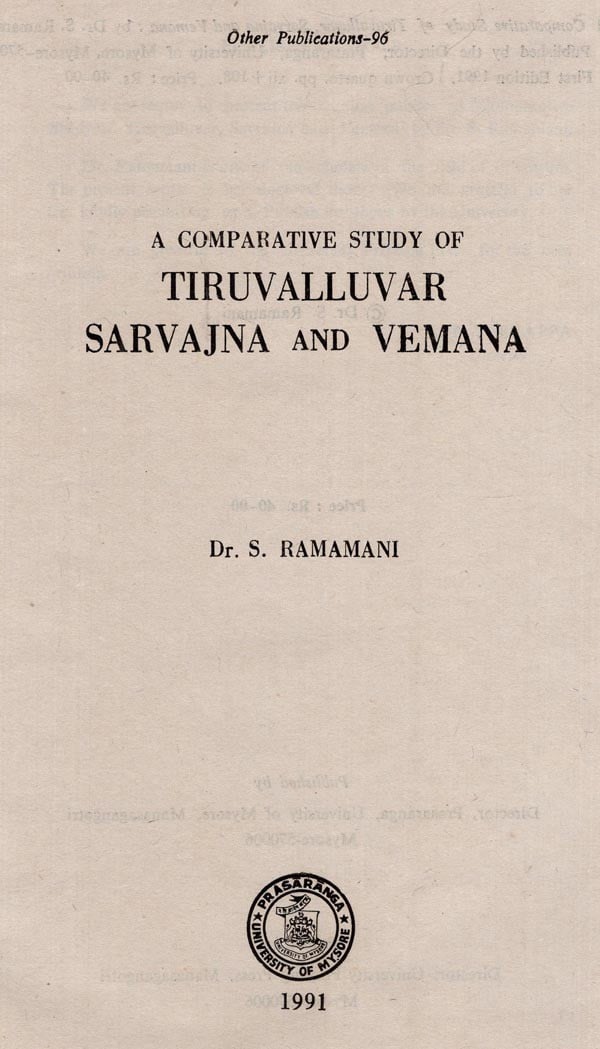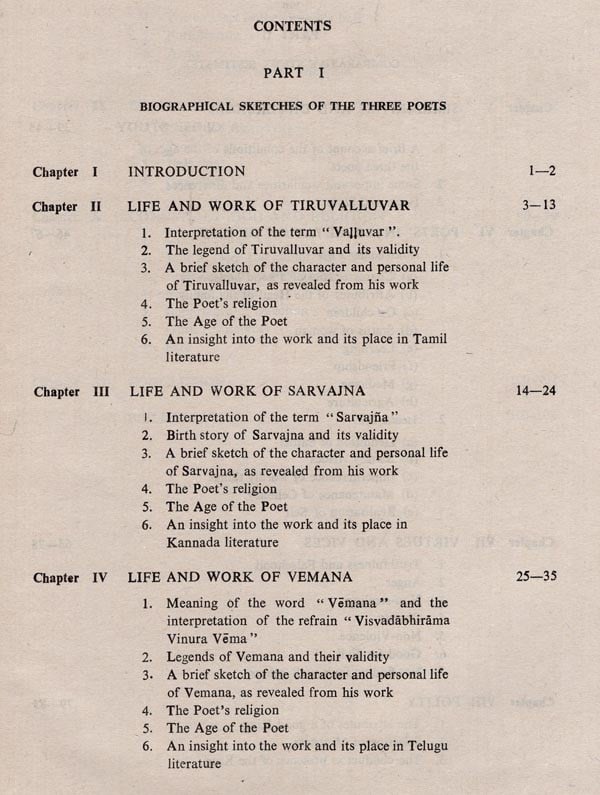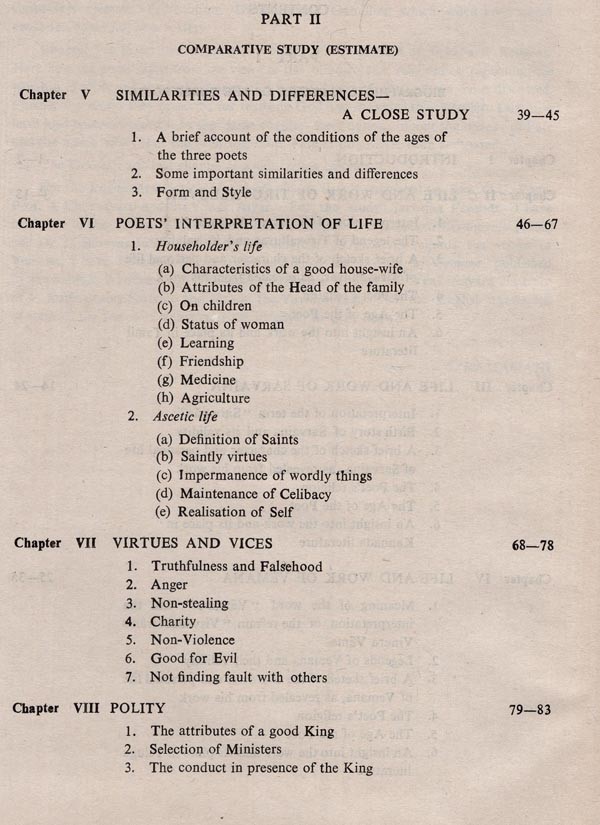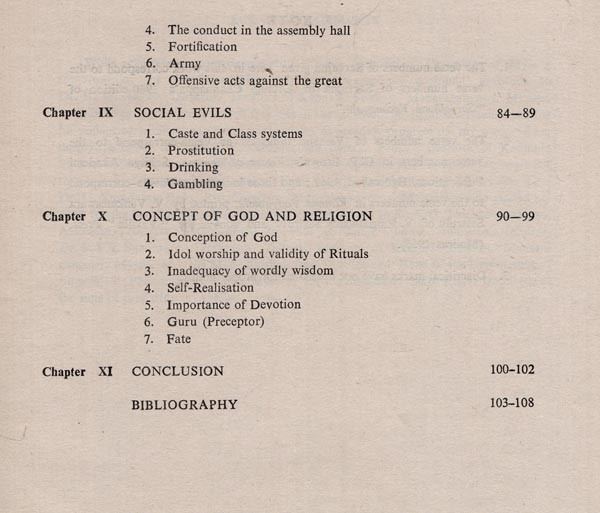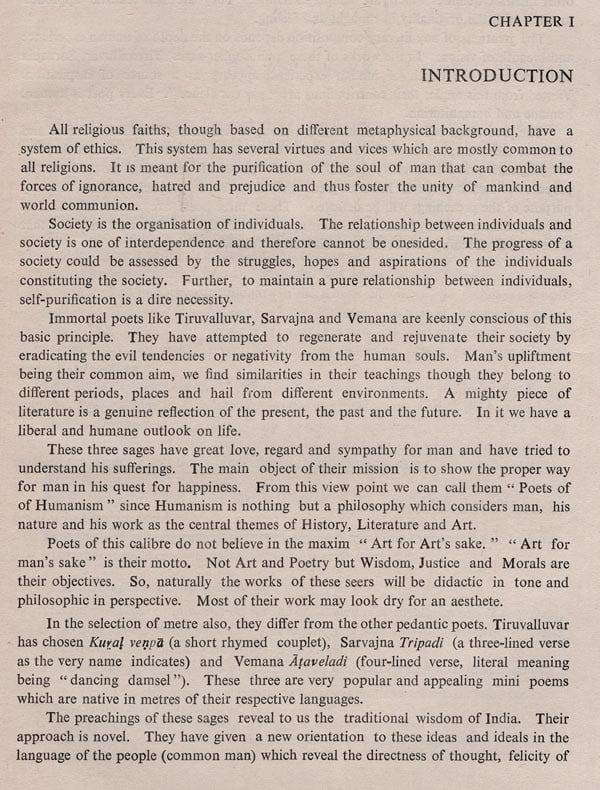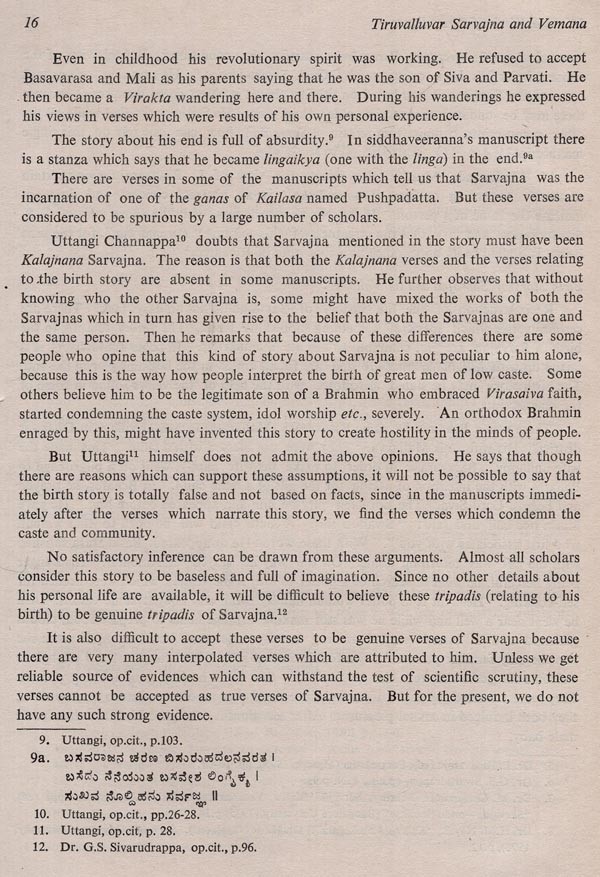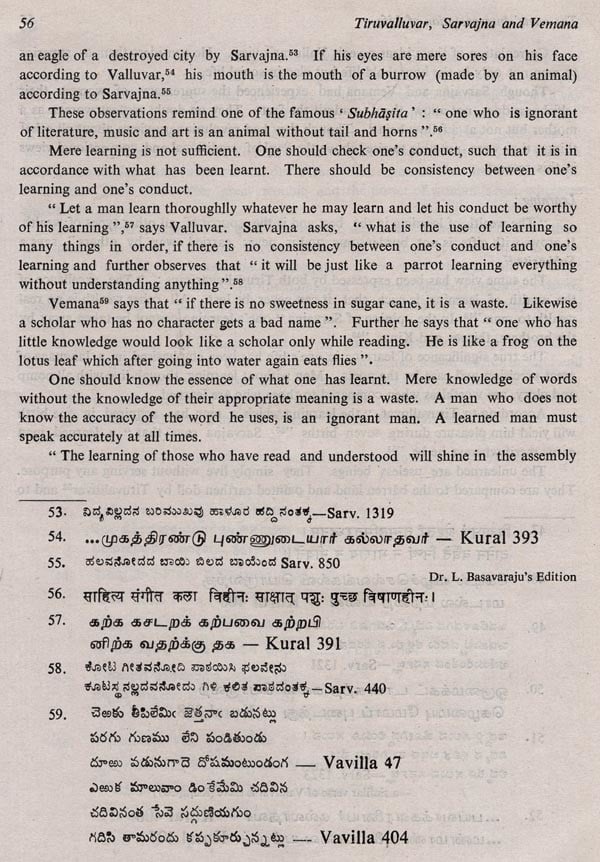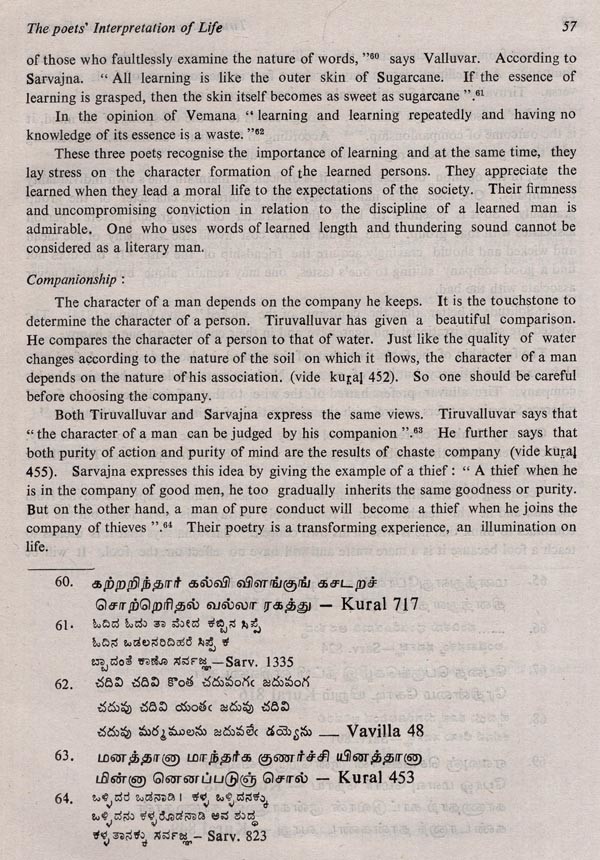
A Comparative Study of Tiruvalluvar Saravajna and Vemana (An Old and Rare Book)
Book Specification
| Item Code: | AZG006 |
| Author: | S. Ramamani |
| Publisher: | University of Mysore, Mysore |
| Language: | ENGLISH |
| Edition: | 1991 |
| Pages: | 122 |
| Cover: | PAPERBACK |
| Other Details | 9.50x7.50 inch |
| Weight | 220 gm |
Book Description
The central aim of the thesis is comparison of the works of these three poets. The course of inquiry in broad outlines will be as follows: This thesis has been divided into two parts. First part is devoted to the study of the lives and works of the poets whereas the second part is devoted for comparing and contrasting the views of the poots on different aspects. The first part consists of four chapters and second part seven chapters.
The first chapter is a general introduction. Here I have given a brief account of the nature and aim of the poets. The biographical sketches of Tiruvalluvar, Sarvajna and Vemana form the second, third and fourth chapters of the First part respectively. Here in these three chapters after evaluating the legends of the poets, a brief account of the character and personal life of the poets as revealed from their works is given. Then the different findings of the scholars regarding the Religion and the Age of the poets have been discussed. Finally after saying a few words about the classification and subject matter of their works, an attempt has been made to locate the places of the works of the poets in their respective literatures.
Fifth chapter contains a brief account of the Political, Social and Religious I conditions that were prevailing at the time of these poets, some of the important similarities and differences between the poets and their works and also a bird's-eye view of the form and style of their poetry.
Sixth chapter namely, "Poets' interpretation of life" has been divided into two sections: (i) House-holder's life and (ii) Ascetic life. House-holder's life contains eight sub-divisions namely the characteristics of a good house-wife, Attributes of the head of the family, On children, Status of woman, Learning, Friendship, Medicine and Agriculture. The opinions of the three poets on all these have been comparatively evaluated. Under the life of the Ascetics, poets' conception of saints and the vows they prescribe for a man who wants to become a saint have been discussed.
In the seventh chapter the approach of the poets towards some of the virtues that must be practiced and vices that are to be shunned by every man has been comparatively estimated.
Chapter Eight deals with Polity. Here the limitations of Sarvajna and Vemana in this particular field when compared to Tiruvalluvar have been traced and some of the intermingling views of the poets have been studied.
Society the organization of individuals. The relationship individuals and society of interdependence society could assess hopes and aspirations of individuals constituting the society. Further, maintain pure relationship between individuals, self-purification is dire necessity.
Immortal poets Tiruvalluvar, Sarvajna and Vemana keenly conscious this basic principle. They have attempted regenerate rejuvenate society by eradicating tendencies negativity from buman Man's upliftment being their common aim, we similarities their teachings though they belong to different periods, places hail different literature genuine reflection present, the past future. it has a liberal and humane outlook on life.
These three have great regard and sympathy man and have tried understanding his sufferings. The object of their mission is showing proper way for man his happiness. From this view point call them of Humanism" Humanism considers nature and his work as central themes of History, Literature Poets of this caliber do believe in the maxim Art for Art's sake," "Art man's sake" is their Not Art and Poetry but Wisdom, Justice Morals are their objectives. naturally the works of these seers will didactic tone and philosophic perspective. Most of their work may look dry an aesthete.
the they differ from the other pedantic poets. Tiruvalluvar has chosen Kural venpa short three-lined the very name indicates) Vemana Araveladi (four-lined verse, literal meaning being "dancing damsel These three very popular and appealing mini poems which in metres their respective languages.
**Contents and Sample Pages**
